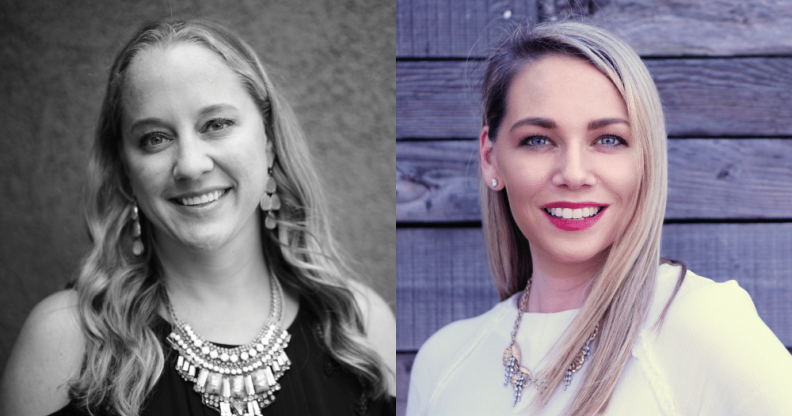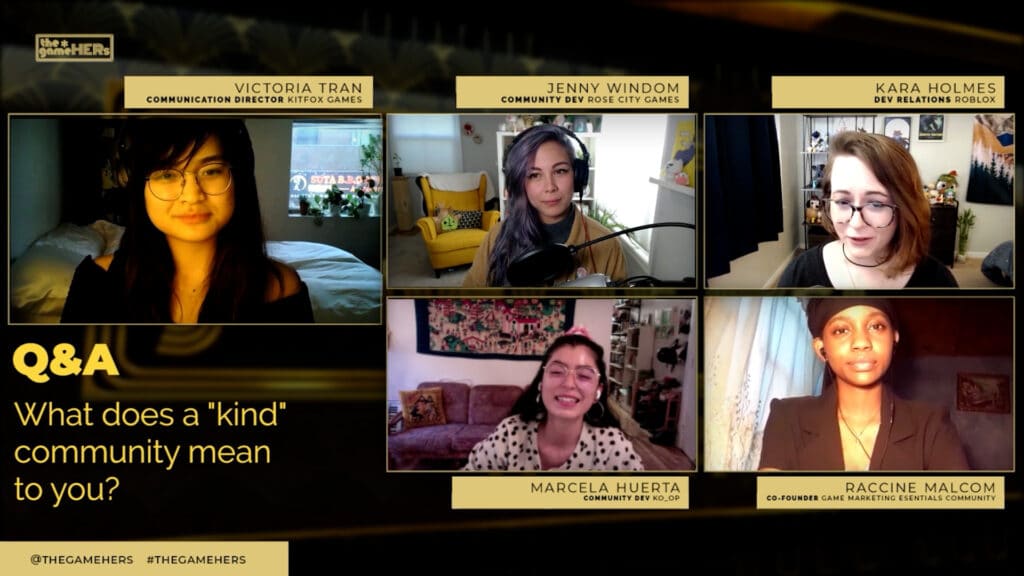New esports division will support female and non-binary gamers: ‘It’s about lifting each other up’

Rebecca Dixon / Rebecca Longawa. (the*gameHERS)
The*gameHERS, a women-led community dedicated to amplifying the voices of women, femme-identifying gamers and non-binary gamers, have just launched a new women’s Collegiate Division.
Their aim is to support women in the male-dominated arena of esports, starting with the Collegiate Division, to create a safe community where women can game and authentically be themselves.
A recent study found that 59% of women hide their identity when playing video games online. That’s because 77% of women say they have experienced gender-specific harassment while gaming.
What’s more, another study (from OddsMonkey) found that women are taking home 98% fewer winnings from esports competitions than the average top competitor, further proving the wide gap between men and women within esports.
This new Collegiate Division, in short, is a fight for equality.
“We are that nucleus of where the community can start for gamers in the collegiate space and really where they can connect and find each other and create their own communities so that they have that safe place to game,” explains Rebecca Longawa, strategist at the*gameHERS who’s worked on the initiative.
“We’re looking for ways we can support the collegiate space through amplifying existing events, really having our brand attached to some events as that rally cry to say this is a safe and inclusive space, that when someone partners with us they’re following the*gameHERS code of conduct and that if there is any type of situation where someone is made to feel uncomfortable there’s a process that’s going to be put in place to really protect these young people as they’re engaging in the gaming world.”
Girls often game from a young age, but this tends to drop off as they get older. The aim of the Collegiate Division, then, is to support young women as they move upwards towards professional leagues. And that goes for the*gameHERS as a whole, supporting young women at all levels of the industry.
“There aren’t enough women with jobs, there aren’t enough women getting scholarships, there aren’t enough women protagonists in the games themselves, the developers, all of it,” says Rebecca Dixon, one of the founding members of the*gameHERS.
“But college is just a really important focus, to get to them and help support them before they even get into the working world.”

the*gameHERS Awards. (the*gameHERS)
As Dixon explains, the*gameHERS is a media platform and social network for women who game and women who’ve worked in the gaming industry. That includes visibility across all social platforms, Discord and Twitch, as well as podcasts, networking and events.
“We like to consider ourselves a hub that amplifies everything that is happening in both the eSports and gaming industries that is supportive, and moving things in a positive direction, for women,” she says.
That includes supporting all female identities. Practicing diversity and inclusion is a big part of the community.
“We are trying to practice internally what we’re trying to preach externally,” says Dixon. “It was important to us to surround ourselves with very qualified people who knew about the gaming industry and knew not just about how to do their jobs, but also how to help us make sure that we’re creating an inclusive and diverse community.”
Longawa elaborates: “We’re the place for anyone who feels like they’re a misfit, like they don’t necessarily fit that stereotype of the male gamer. We want to be a place where the outliers can come together and really feel like their voices are being heard and that their goals are important.
“It’s about lifting each other up and amplifying everybody’s voice.”
As studies have shown, esports is something of an uphill battle for women in the industry. And so the aim of the*gameHERS is to support women through the Collegiate Division and beyond, along with partnerships with esports organisations like Evil Geniuses, Team Liquid, SPIN, eFuse and Lenovo.
That begins with online gaming for all women, to avoid harassment from men such as being patronised, having their skills questioned, and inappropriate sexual messages.
“What we can do is create a safe place for female gamers so that they have the ability to safely game together and to grow their skills,” says Longawa.
“They’re being treated in toxic ways. They’re feeling like they’re afraid to go in and game with strangers or in a lobby because they might get kicked out or treated unfairly.
“So when that happens again and again, that’s where the drop off is happening of girls giving up on gaming. We don’t want girls to give up on gaming.”
By creating safe spaces, resources, clubs, and highlighting supportive teams and organisations, the*gameHERS will increase the longevity of women in gaming.
So what does the future of esports look like for women?
“The end game is to continue to move along that path to where women feel equal and honoured and safe. And there’s certainly a long way to go,” says Dixon.
“I think balance is probably the ultimate goal. If we can help move the needle forward, we’re just one small step in a very long process of creating a more balanced space in gaming and eSports,” says Longawa.
“I think the video game industry has made some steps but so much more needs to be done on inclusion of female protagonist characters in games, reducing the sexualization of female characters in games. That’s where it starts, and then it bleeds through the entire industry from there.”
In supporting women gamers in all areas of the industry and at all levels, the*gameHERS are striving for equality and safety above all.
As Dixon says: “Gaming is the ultimate equaliser. Women theoretically can play just like men. And will women still want to play on their own? That’s something that’s debated a lot. It’s possible. But at least we always want them to feel safe.”
For more gaming news, follow Gaymeo on Facebook. You can also email us with any news or tips on [email protected]

